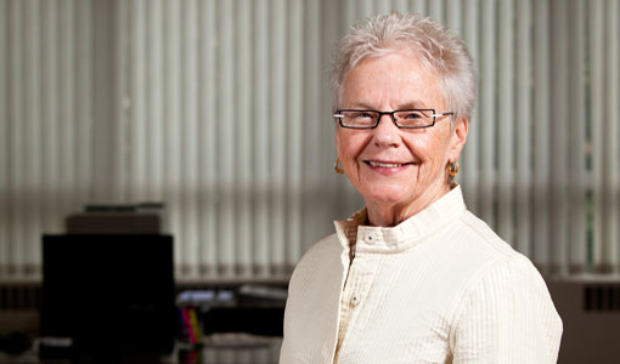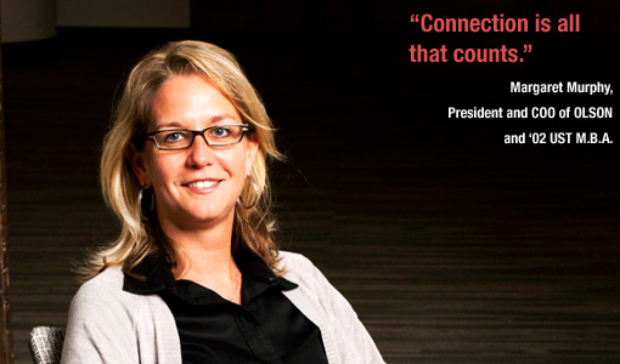From a vigilance committee to secret shoppers, the president and CEO of the Better Business Bureau of Minnesota and North Dakota explains how the organization has evolved during its first 100 years.
How did the Better Business Bureau get its start?The Better Business Bureau of Minnesota and North Dakota was the first BBB - in the world! Our roots trace back to 1912 in Minneapolis, when local business leaders banded together to promote truth in advertising, forming a "vigilance committee" of the Minneapolis Advertising Federation dedicated to ensuring an ethical marketplace.
Speaking of an ethical marketplace, how does the BBB ensure such a thing?The BBB has trained operators available to answer questions from the public and help them make informed purchasing decisions. We’re also constantly monitoring the marketplace for scams that target both businesses and consumers, and we expose these scams through media releases.
Thanks to the support of our accredited businesses, we’re able to provide a forum where businesses and customers can resolve their differences; monitor advertising in Minnesota and North Dakota and challenge hundreds of questionable advertising claims each year; keep the public in the know about fraudulent offers and unethical business practices through our network of media contacts; offer free business reviews on both accredited and non-accredited businesses; and provide a forum where businesses and entire industries can come together in the very best of self-governance models to police their own activities.
What is the process you use for challenging questionable advertising claims?Our staff gathers on a weekly basis to review newspapers from 20 markets in our region, clipping ads with claims that violate codes of advertising or just seem too good to be true. We also review online and broadcast media. Often, our cadre of volunteer secret shoppers actually will test the ads for veracity. Then our ad review staff contacts the advertiser and asks for substantiation of the claims or suggests modifications. While we have no legal clout or authority, advertisers respond favorably to us with surprising frequency, often because the ads were placed incorrectly out of ignorance, or because the companies wish to avoid the stigma of a negative report with the BBB.
Can you provide an example of a story from one of your secret shoppers or perhaps a "too-good-to-be-true" ad?While we regularly uncover offers that are too good to be true (e.g., retailers who jack up the prices for items before offering a "BOGO" sale) and uncover bait-and-switch tactics (where a widely advertised item is available in the store in a quantity of one or very few), one of our recent cases posed some interesting ethical questions.
Consumers informed us of a company offering to write essays or complete homework for college or high school students for a fee, also guaranteeing an "A" on that work. The BBB asked one of our college interns to contact the company, asking for a three-page, college-level essay with the topic, "Is it ethical to advertise to children?" The BBB also visited the company’s location and found it had been evicted after nonpayment of rent and a drug possession raid. Our secret shopper only could reach the company by leaving a message. The essay our shopper received was referred to a professor regarded as an expert in the ethics of children’s advertising. The professor graded the paper as a "C" and advised us he was being "generous." Meanwhile, the BBB contacted the company, inquiring about several of its advertising claims. When we did not receive an adequate response to our inquiry, we issued a press release warning consumers to be wary of the firm. The story was picked up by more than 75 news outlets nationally.
What are the repercussions for a BBB member against whom a complaint is lodged?Our chapter receives nearly 25,000 consumer complaints a year against both accredited and nonaccredited businesses. Our role is to act as a fair and impartial mediator, to try to bring the parties together for a mutually agreeable solution and to preserve the consumer-company relationship. We offer conciliation, mediation and even binding arbitration. We recognize that even good companies get consumer complaints, so it is the manner in which the company responds that is crucial to the BBB. An unresolved complaint against an accredited business where we feel that the business did not make a good faith effort to seek a solution is grounds for suspension and severely affects the company’s letter grade of all companies - not just those accredited by us.
What goes into assigning a letter grade?A company’s letter grade with the BBB is predicated upon 16 different factors, including time in business, complaint history, government actions and others. Points are deducted within our ratings formula (and the grade lowered) for both unanswered complaints as well as for those in which we find the company did not make a good faith effort. We also deduct points if we find a company has a pattern of unresolved complaints; however, we hold accredited businesses to a higher standard: If they fail to respond or to make a good faith effort, they are subject to having their accreditation revoked, for failure to live up to our standards expected of members.
Are there any additional challenges in monitoring members that may not be traditional brick-and-mortar companies?Working with "virtual" companies without a physical presence is certainly more of a challenge. We often find that companies offering only online products and services may claim locations that turn out to be offshore, or even a UPS store mailbox. It also is hard to determine ownership of web addresses, or the companies operating them. Companies are clever at further masking their real identities by frequently changing their web storefronts; however, to be an accredited business we require a verifiable physical presence within our service area. We also require websites that meet all of our standards (which includes listing of an address, a privacy policy and others), and we assure that the product or service offered falls within the list of business types that are eligible for accreditation (for instance, online gambling and work-at-home offers are ineligible).
What happens when the credibility of the BBB is called into question? I am referring to the Southern California chapter that appeared to be "selling" ratings.This question poses the classic dilemma all large organizations face when a single miscreant soils the reputation of the organization as a whole. A story featured on 20/20 in November 2010 told the tale of a BBB in Southern California that allowed good ratings to be bought by any company, regardless of its history (even the terrorist organization Hamas). The practices of this one organization in Southern California were totally at odds with systemwide standards.
The BBB is comprised of 120 individually governed bureaus in the United States and Canada, all overseen by independent boards of directors. We are loosely affiliated with the national Council of Better Business Bureaus, which sets operating standards for practices such as ratings and accreditation. When it was discovered that one or two bureaus were not adhering to those standards in several very scandalous instances, the staff and leadership in our chapter were shocked, disappointed and demoralized. We proceeded aggressively to tell the local press that. In fact, the accreditation processes we use here in Minnesota were used as a national model in the aftermath of the 20/20 story.
That being said, an organization that trumpets the need for transparency has to welcome any such scrutiny - and we do. All of the issues in the press were taken seriously and a thorough review of all processes at the national level was conducted. Changes were made and still more are in the works. Has our reputation been tarnished? It has. But no organization survives for 100 years without having sound fundamentals and a commitment to consistency and integrity. We will survive this as well. Our tagline, "Start with Trust," is intended to convey the notion that our entire existence is dependent upon creating a marketplace where buyers and sellers can trust one another. Clearly, the public needs to be able to trust the BBB.
As the BBB begins to celebrate its 100 years as an advocate for good business dealings, how do you see the organization evolving in the next decade?We are excited to be celebrating our "staying power" with our 100-year anniversary. That said, we also are enthusiastic about our ability to adapt with the times and offer services electronically and through the most current technologies. We are extremely mindful of the need to stay relevant to new generations of consumers who did not grow up with the stalwart BBB as the symbol of consumer trust that their parents and grandparents did, and to that end we are working harder than ever to ensure that we meet the needs of all consumers - of all ethnicities and national origins, of all ages and at all walks of life.
Just as an example, we recently launched an advertising campaign based upon the theme of "Don’t Lose Your Shirt" featuring a young professional walking the skyways shirtless, which we aired on Saturday Night Live. And recognizing the unique needs of military men and women and their families for consumer education and scam awareness, we also are launching a program directed specifically at those audiences. In the end, trust in the marketplace is timeless.
Read more from B. Magazine





